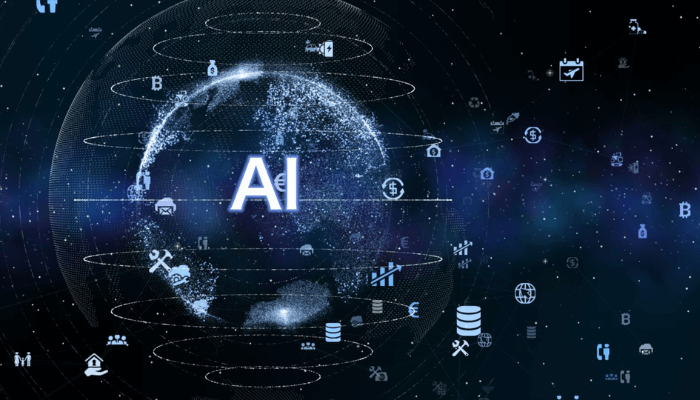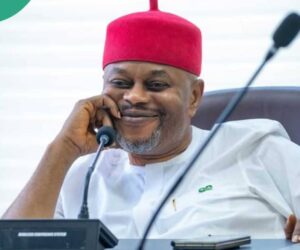When people talk about the “AI race,” Africa often feels like a spectator watching from the stands. America, China, and Europe are sprinting ahead, backed by billions of dollars and huge machines powering their innovations. Meanwhile, on our side, the questions are louder than the answers: Where does Africa stand? Are we already left behind?
The truth is complicated. Africa is not short of talent. Walk into any tech hub in Lagos, Nairobi, or Cape Town and you’ll meet brilliant young people writing code, building apps, and dreaming of global impact. Yet when it comes to competing in the heavyweight category of artificial intelligence where giant models are trained, and billions are invested. Africa is far behind.
Let’s break it down.
Why the Track Feels Slippery
Artificial intelligence may look like rocket science, but its foundation rests on three things: electricity, data, and people. These three ingredients are where Africa’s challenges lie.
1. The Electricity and Internet Struggle
Anyone in Nigeria knows the frustration of power cuts. Now imagine running a data center (one of those facilities packed with computers that process massive amounts of information) while dealing with daily blackouts. AI requires nonstop, stable electricity. Without it, hardware gets damaged, costs skyrocket, and investors run away.
So, what do startups do? They rely on diesel generators. Apart from being expensive, these generators pollute the air and eat up funds that could have been used for research or hiring more staff.
Then comes the internet issue. AI depends on fast and affordable connectivity. But here, internet speed is often slow, and data prices are among the highest in the world. For young innovators, this creates a frustrating bottleneck.
And when we talk about servers (those powerful machines that train AI models) Africa owns less than 1% of global data center capacity. That means most of our AI work is “outsourced” to servers in Europe or America. The result? Higher costs, slower speed, and lost opportunities.
2. The Data Deficit and Language Barrier
AI learns from data the way students learn from textbooks. If the textbooks don’t cover your culture, your history, or your language, the lessons will always feel foreign.
For Africa, the challenge is clear: most global AI systems are trained on Western data. They don’t understand African accents, local slang, or our 1,000+ languages. Imagine asking an AI health tool to analyse a Yoruba patient’s symptoms when most of its training data comes from London or New York hospitals. The results will likely be off-target.
Even more worrying is that much of Africa’s medical, agricultural, and financial data is not digitised at all. Hospitals still keep patient records on paper. Farmers often lack structured records of their harvest. Without this data, building effective AI systems becomes harder.
3. The Money and Talent Drain
To play at the global level, AI requires a lot of money. Training a large AI model can cost millions of dollars. African investors, however, often prefer safer bets like e-commerce or fintech rather than risky, long-term AI research.
And then there is the issue of brain drain. Africa produces talented engineers and scientists every year, but many get recruited by big tech companies abroad. The continent becomes a training ground for talent that eventually leaves. We celebrate the success of Africans working at OpenAI, Google or Microsoft, but deep down we know their expertise is not strengthening our local ecosystem.
Rays of Hope: What’s Changing
Despite these challenges, Africa is not standing still. Across the continent, people are rolling up their sleeves to build AI systems that speak to local problems.
Local Movements
Groups like Deep Learning Indaba and Masakhane are training researchers and developing open-source language models that actually understand African languages. These communities are saying, “If Silicon Valley won’t build for us, we will build for ourselves.”
Government Strategies
Countries like Rwanda, Kenya, and Egypt are drafting national AI strategies. These blueprints focus on areas such as healthcare, agriculture, and education, with the aim of applying AI to problems that truly matter locally.
It’s a shift from just consuming foreign technology to actively creating homegrown solutions.
Startups Finding a Way
African startups are also thinking creatively. Instead of waiting for perfect infrastructure, some are using edge computing putting processing power closer to the user to reduce reliance on fast internet. Others are designing AI tools for low-cost smartphones, knowing that’s the device most Africans can afford.
The Road Ahead: From Consumers to Creators
If Africa is going to catch up, we need a mindset shift. The question should not only be, “How do we join the global AI race?” It should also be, “How do we design AI that solves African problems?”
Take agriculture as an example. Imagine a farmer in Benue uploading a picture of diseased crops on a simple phone app. The AI diagnoses the problem instantly, suggesting solutions without requiring 5G internet or an expensive device. That kind of tool could transform food security.
Or consider healthcare. An AI system trained on local patient data could help rural doctors detect illnesses earlier, saving lives in places where specialist doctors are scarce.
These are not futuristic dreams. They are possibilities within reach if governments, investors, and innovators commit to building AI for Africa, not just importing it.
So, Are We Left Behind?
Yes and no. Africa is behind when it comes to global investment, computing power, and data infrastructure. But the race is not only about who builds the biggest models or who gets the most patents. For Africa, the real prize is building AI that addresses hunger, unemployment, poor healthcare, and weak education systems.
In that sense, Africa is not out of the game. We are simply running a different kind of race, a marathon where endurance, creativity, and community will matter more than raw speed.
If we get it right, AI could become one of the most powerful tools for solving Africa’s toughest problems. And when that happens, the question won’t be whether we were left behind, but whether the rest of the world can keep up with Africa’s unique path









